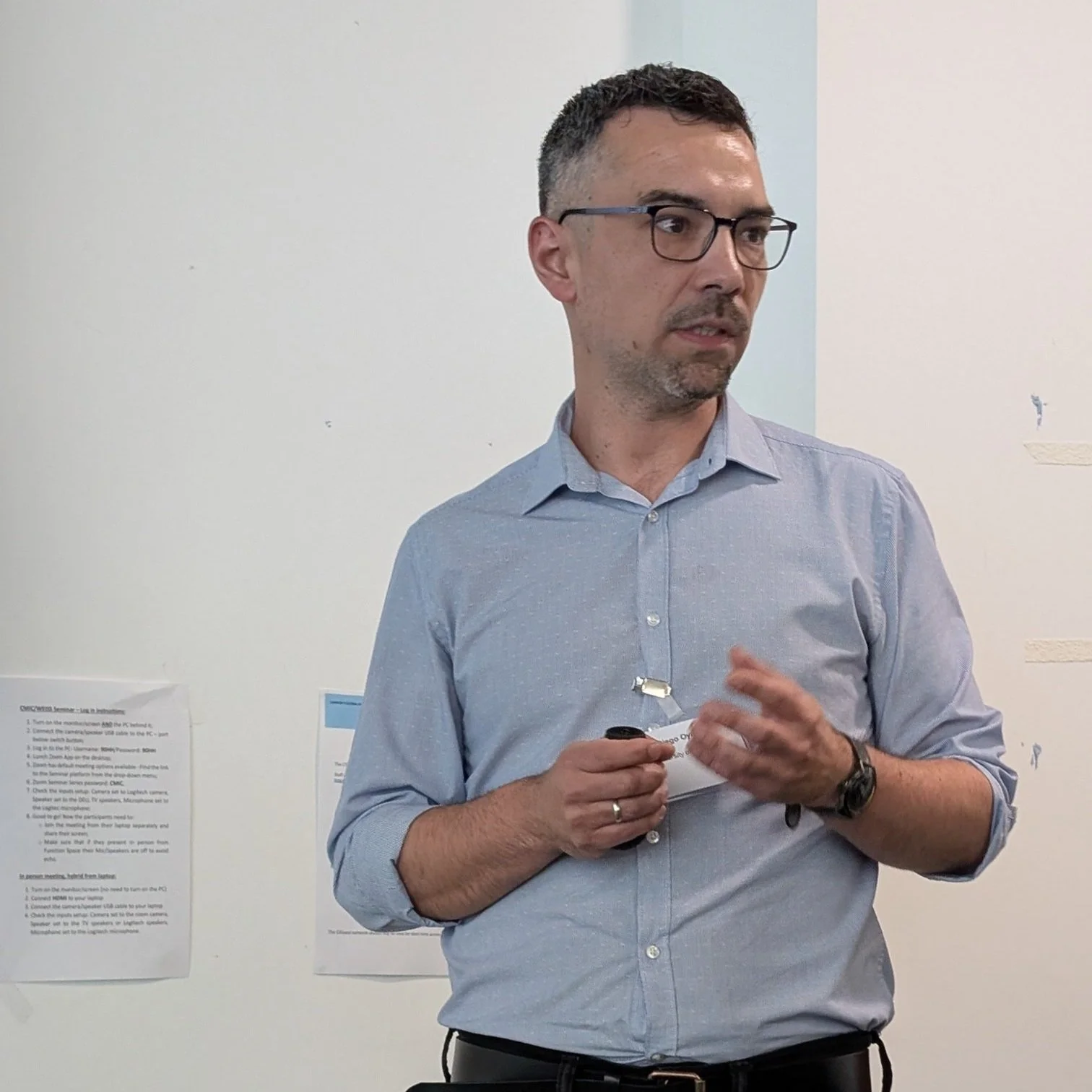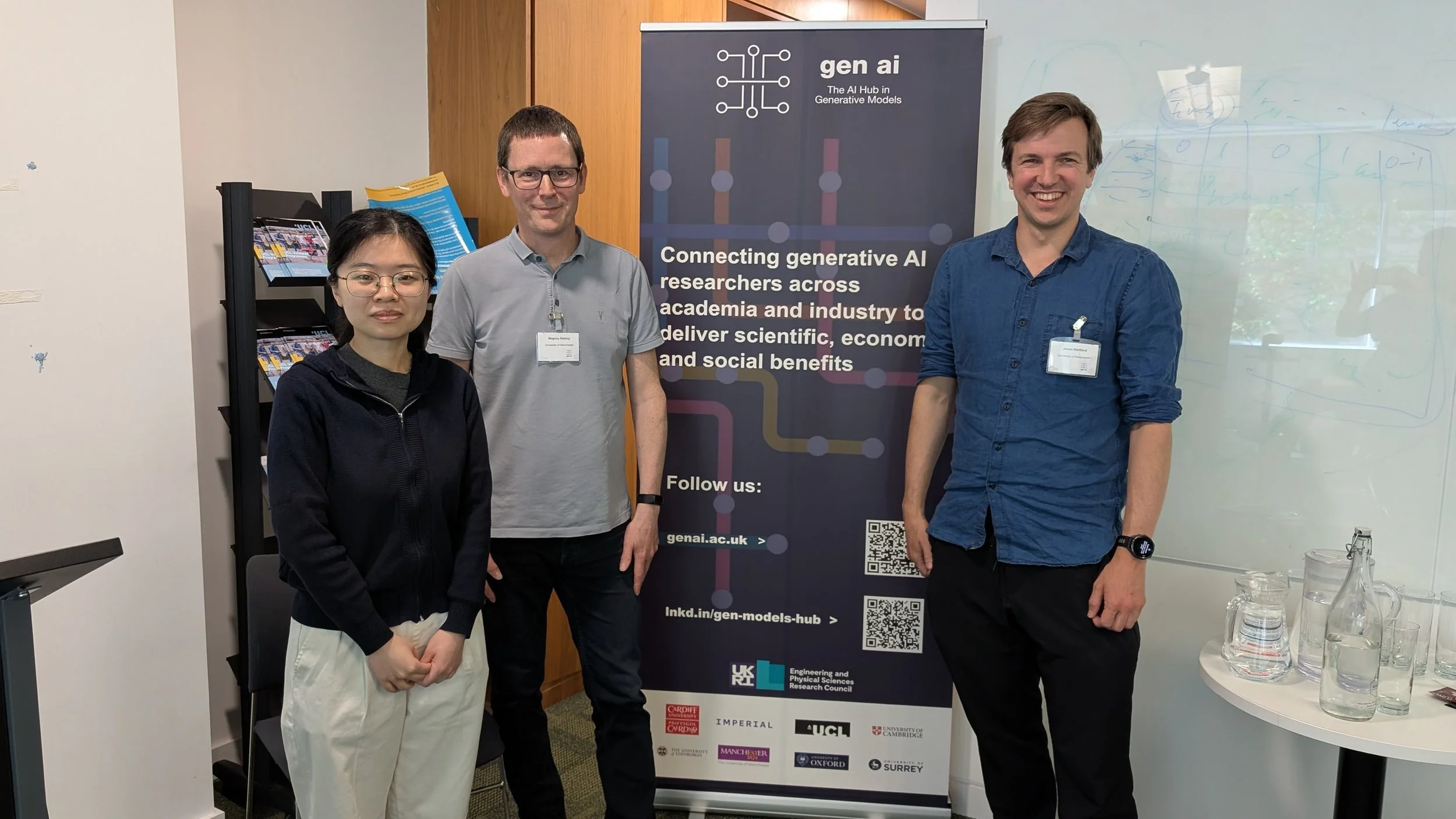Working group activities launch with Gen Biology workshop
Earlier this week, we hosted our first workshop, which brought together researchers working on Generative AI in Biology.
The session was kicked off by Chris Barnes of UCL with a presentation on using Generative Models for genome design.
We were delighted to welcome Charlotte Bunne of EPFL who presented remotely from Switzerland on virtual cells & digital twins in personalised medicine. She described her research exploring ways that Generative Models can forecast a drug's success by mapping how cells in cancer patients would respond to different treatments.
Sarah Teichmann of the University of Cambridge described a series of collaborative projects to map the human body, cell by cell: "If we sort of dream for a minute,” she said, “then one day we might be able to make whole chromosomes, inject them into cells culture and then have an entire engineered cell that has the properties that we want."
Marta Milo of AstraZeneca looked at the impact of Generative AI in drug discovery and patient selection, describing how AI is helping AstraZeneca work towards its ambition to eliminate cancer as a cause of death. She said that AI covers all steps of the drug discovery pipeline, across different functions from discovery and validation to the late clinical stage.
Other speakers included Francesco Di Giovanni of Valence Labs, who talked about his research into using generative models for describing protein dynamics, and Jussi Taipale from the Sanger Institute whose presentation focused on predicting gene expression from sequence.
We also heard from two members of the Hub’s GenBiology Working Group, the University of Manchester’s Jason Hartford and Diego Oyarzum of the University of Edinburgh who both focused on overcoming some of the barriers and challenges faced when using Generative Models in Biology.
Thank you to our University of Manchester colleagues Magnus Rattray, Jason Hartford and Yuhan Wang for leading on this workshop.
If you would like to collaborate with our Gen Biology working group please email us on genai@ucl.ac.uk





